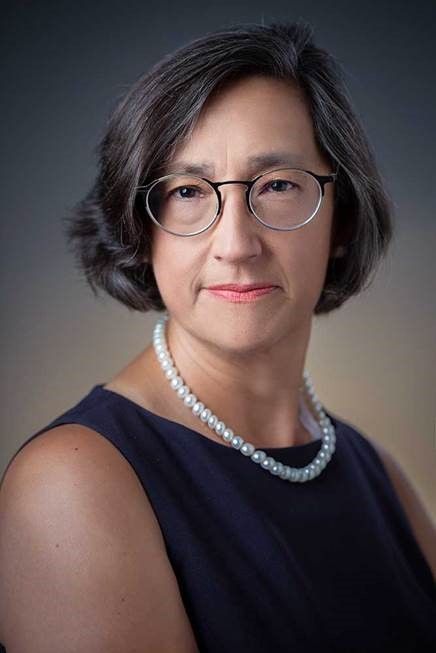- Thousands of Europeans from 15 countries will participate in the “3TR” project, led by Mexican-North American doctor Marta Alarcón Riquelme, director of the Granada-based Genyo center.
- “About 30-40% of patients have a poor response to existing treatments today,” acknowledges Dr. Alarcón Riquelme, who will give more details of the “3TR” project at the “BioMed & Tech Talks” (April 8-11) in Granada, coinciding with the day and the World Health Week.
- They specifically study seven diseases: asthma, multiple sclerosis, rheumatoid arthritis, ulcerative colitis, Crohn’s disease, chronic obstructive pulmonary disease and systemic lupus erythematosus.
- The “3TR” project is the largest European project among the Innovative Medicines Initiatives and is endowed with 80 million euros, half of which is paid by the European Union and the rest by the 69 partners and pharmaceutical companies.
Dr. Marta Alarcón Riquelme, director of the Genomics and Oncology Research Center (GENYO), will be one of the main protagonists of the first edition of ‘BioMed &Tech Talks’: Your appointment with research and innovation, which will be held from April 8 to 11 at the Granada Health Technology Park, coinciding with World Health Day and Week.
BioMed &Tech Talks’ is supported by the Progreso y Salud Foundation (FPS), of the Ministry of Health and Consumer Affairs of the Andalusian Regional Government, and representatives of the World Health Organization (WHO), the European Commission, Farmaindustria, the Andalusian Health Service (SAS), the Spanish Association of Biocompanies (ASEBIO) and associations of health communicators, such as ANIS, AEC2 and Comunicabiotec, have already confirmed their participation.
Alarcón Riquelme, a scientific eminence
Born in Rochester, Minnesota (USA), of Mexican descent, she studied medicine at La Salle University (Mexico), and completed her doctoral studies at the Universities of Stockholm and Uppsala, in Sweden, where she is still a professor at the prestigious Karolinska Institute.
Dr. Marta Alarcón has become an international reference in autoimmune pathologies, especially in “systemic lupus erythematosus”, a disease to which she has devoted many years of study.

She currently carries out this professional work in Granada as director of the GENYO center, where she develops and heads the ‘TR3 Project’, the largest immunology project of the Innovative Medicines Initiative 2 (IMI2), a “European research project to improve the response to treatment in autoimmune, inflammatory and allergic diseases”.
The GENYO Center, sponsored by the multinational Pfizer, the University of Granada and the Regional Government of Andalusia, is the first national center dedicated to genomics and conceived as a space for research of excellence on the genetic basis of diseases, as well as on the influence that genetic inheritance has on the body’s response to certain drugs.
The ‘3TR Project’, a major European challenge
The “3TR” project is an ambitious research project that could change the way in which patients with immune-mediated diseases receive their treatments, since, as Dr. Alarcón Riquelme acknowledges, “around 30-40% of patients have a poor response to the treatments that exist today”.

With just over 200 people involved in the project, it follows more than 2,000 patients whose samples will grow to 6,000 or 8,000, illustrating the magnitude of the research focused on seven diseases such as systemic lupus erythematosus, rheumatoid arthritis, multiple sclerosis, Crohn’s disease, ulcerative colitis, asthma and chronic obstructive pulmonary disease.
“What we are trying to answer is what are the mechanisms behind that response and non-response to treatment. Today we use a number of multi-omics technologies that are quite general. We try to study them on a large scale within various diseases to be able to understand those mechanisms behind the response and non-response to current treatments,” explains the researcher.
“What we are looking for is why 30-40% of people do not get what their doctor prescribes,” says Alarcón Riquelme, who points out that “together with the Andalusian Biobank, patient samples are being processed to reach a sequencing point and, in this way, harmonize the whole process”.
The same treatment for different diseases?
The main objective of Alarcón Riquelme and the entire ‘3TR Project’ team is to find the reasons why a patient does not respond to a given treatment and to determine whether the same treatment can be used to treat two different diseases:

“If I have a patient with a pulmonary disease, it may happen that there are pathogenic pathways that are shared with another and, therefore, patients with different diseases can receive the same treatment. This would help to carry out clinical trials in which patients with different diseases can be included, to see which have the same pathogenic mechanism and to use the same treatment, regardless of the clinical diagnosis,” she explains.
A real challenge for which new technologies or Artificial Intelligence can facilitate the work or, at least, extend the field of action. “It is important because (AI) allows us to work with models that help us diagnose and predict a series of things with a series of data that we can obtain without the need for a sample. Inferences that help us create hypotheses and be able to help in everything related to personalized medicine to be able to treat patients in the most appropriate way possible.”
Innovative format for a high-level event
The Granada Health Technology Park will host the first edition of ‘BioMed&Tech Talks’: Your appointment with research and innovation, a new independent, transversal, international and multidisciplinary event that from April 8 to 11, 2024, coinciding with the World Health Day and Week, will give visibility to innovative projects in BioMedicine and BioTechnology.
The agenda will include two face-to-face sessions (Monday 8 and Tuesday 9 April) and two virtual sessions (10 and 11). This format makes it easier for speakers who cannot travel to Granada to share their progress and messages with the entire community, which raises the academic level of this event to the highest level.
